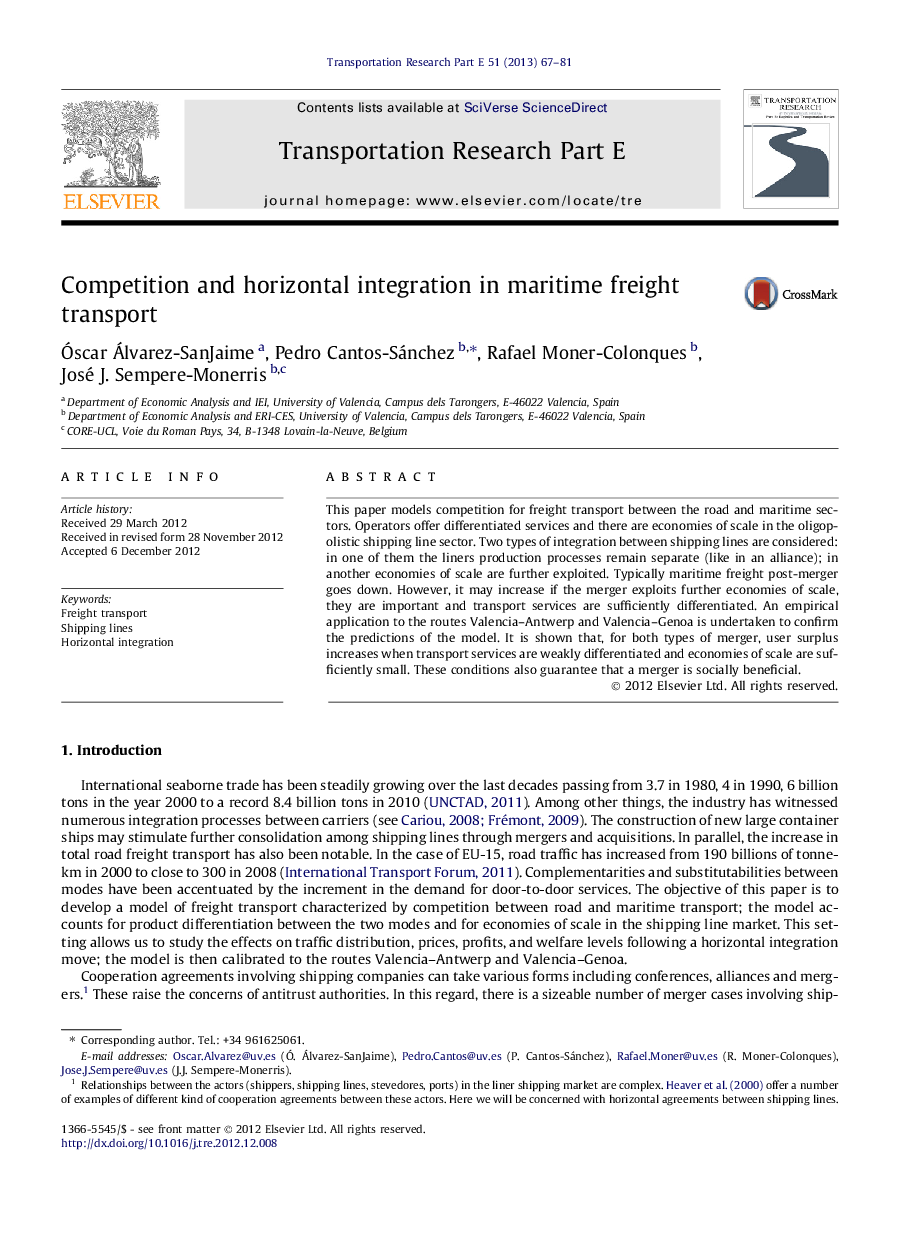| Article ID | Journal | Published Year | Pages | File Type |
|---|---|---|---|---|
| 1023502 | Transportation Research Part E: Logistics and Transportation Review | 2013 | 15 Pages |
This paper models competition for freight transport between the road and maritime sectors. Operators offer differentiated services and there are economies of scale in the oligopolistic shipping line sector. Two types of integration between shipping lines are considered: in one of them the liners production processes remain separate (like in an alliance); in another economies of scale are further exploited. Typically maritime freight post-merger goes down. However, it may increase if the merger exploits further economies of scale, they are important and transport services are sufficiently differentiated. An empirical application to the routes Valencia–Antwerp and Valencia–Genoa is undertaken to confirm the predictions of the model. It is shown that, for both types of merger, user surplus increases when transport services are weakly differentiated and economies of scale are sufficiently small. These conditions also guarantee that a merger is socially beneficial.
► Competition for freight transport between the road and maritime sector is analyzed. ► Two types of horizontal mergers in the shipping line industry are studied. ► Social welfare increases under small scale economies and services weakly differentiated. ► The shipping lines have strong incentives to merge. ► Two empirical applications of the theoretical model are undertaken.
